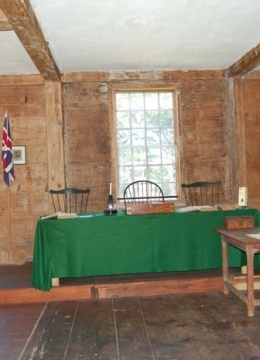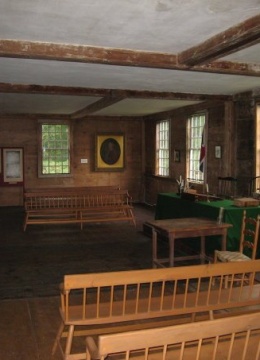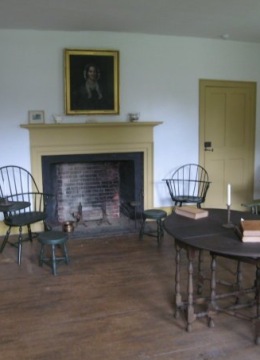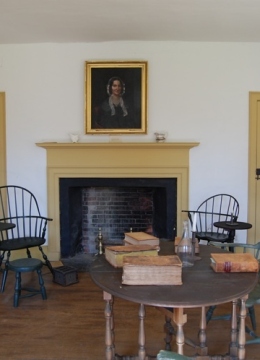John Adams
At Pownalborough Court House
John Adams, the second President of the United States, came to Pownalborough in 1765. Due to the location, he, like many others, struggled to reach it. Adams wrote in his 1802 Autobiography about his journey to Pownalborough from Falmouth: “I was taken ill on the road and had a very unpleasant excursion. It is unnecessary to enlarge upon the fatigue and disgust of this journey. It was the only time in my life, when I really suffered for want of provisions. In general it was a wilderness encumbered with the greatest number of trees, of the largest size, the tallest height, I have ever seen. So great a weight of wood and timber has never fallen in my way. The roads where a wheel had never rolled from the creation, were miry and founderous, encumbered with long sloughs of water. The stumps of the trees which had been cut to make the road all remaining fresh, and the roots crossing the path some above ground and some beneath so that my horses feet would frequently get between the roots and he would flounce and blunder, in danger of breaking his own limbs as well as mine. I reached Pownalborough alive, gained my cause much to the satisfaction of my client and returned home. This journey, painful as it was, proved much to my interest and reputation, as it induced the Plymouth Company (Kennebec Proprietors) to engage me in all their causes, which were numerous and called me annually to Falmouth Superior Court for ten years.”
There has been speculation over where Adams stayed while at Pownalborough. In The Professional Tours of John Adams Joseph Williamson supposes that Adams stayed with one of his Harvard classmates, Jonathan Bowman, Clerk of Courts, or Charles Cushing, Sheriff of Lincoln County. But in Adams’ “Accounts of the Eastern Circuit, 7-12 June, 1765,” which is to be found in his Diary and Autobiography, it appears that on this visit at least, he did not. He paid for lodging at Sewall’s, Springer’s and Lovejoy’s. This last is of interest because Abeil Lovejoy was being sued by Jonathan Bowman, and Adams became involved in that case. His accounts suggest he was there for only two or three days of the court session which lasted two or three weeks.
Attorney for the Kennebec Proprietors/Case Involvement
Pownalborough Adams won a case for Major Noble and his tenants. Whereupon the Kennebec Proprietors, impressed by his ability, retained him as their attorney, and he appeared there after in all their causes for the next ten years. Also, Adams was involved in the Bowman vs. Lovejoy case. In this case both plaintiff and the defendant were shrewd businessmen. Bowman was seeking to collect 6 pounds 1 shilling 4 pence from Abiel Lovejoy for the preparation of twenty one legal actions. The case was complicated by several credits and by Lovejoy’s offer to settle for four pounds. The court referred the case to a panel of referees, John Adams being one. The referees’ report, written in Adams’ handwriting, was signed by Major Samuel Goodwin, Arthur Noble, Jacob Chipman and then by John Adams himself, and ruled in favor of Bowman. It is a small wonder that after 1765 he passed-by Lincoln County Inferior Court by appealing cases directly to the Superior Court at Falmouth, and came no more to Pownalborough Court House.
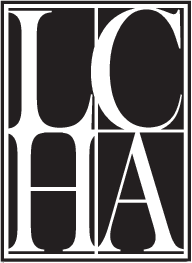
 Newsletter
Newsletter Join LCHA
Join LCHA Donate Now
Donate Now